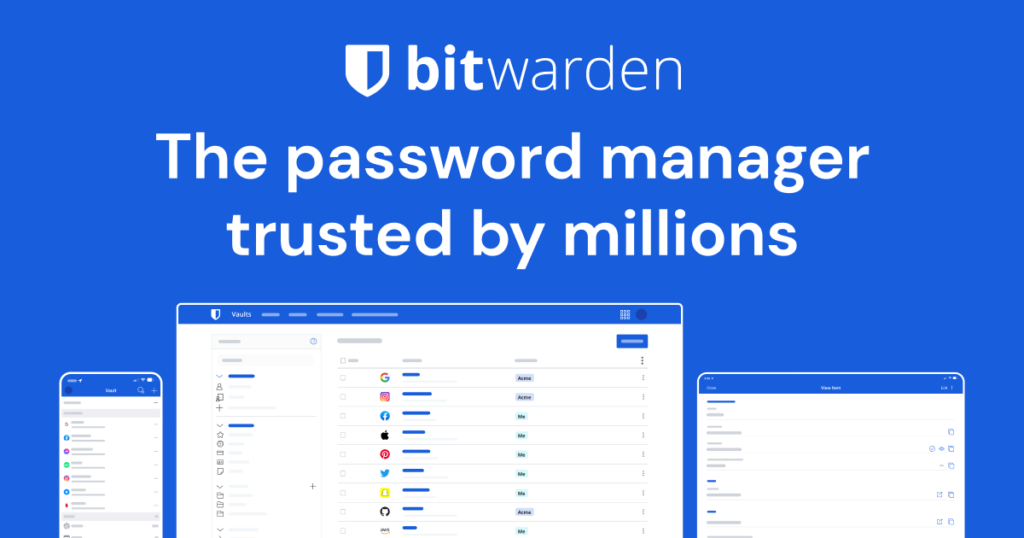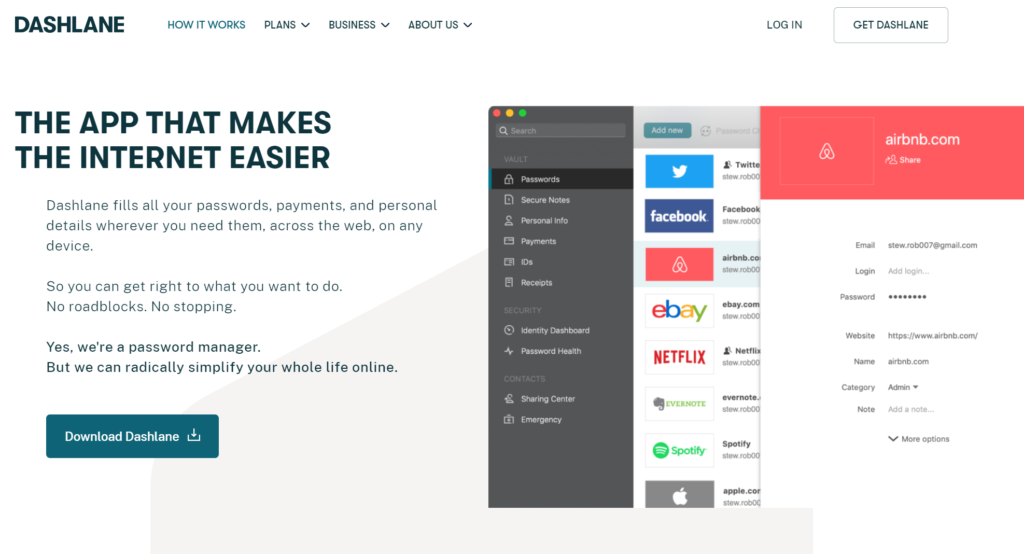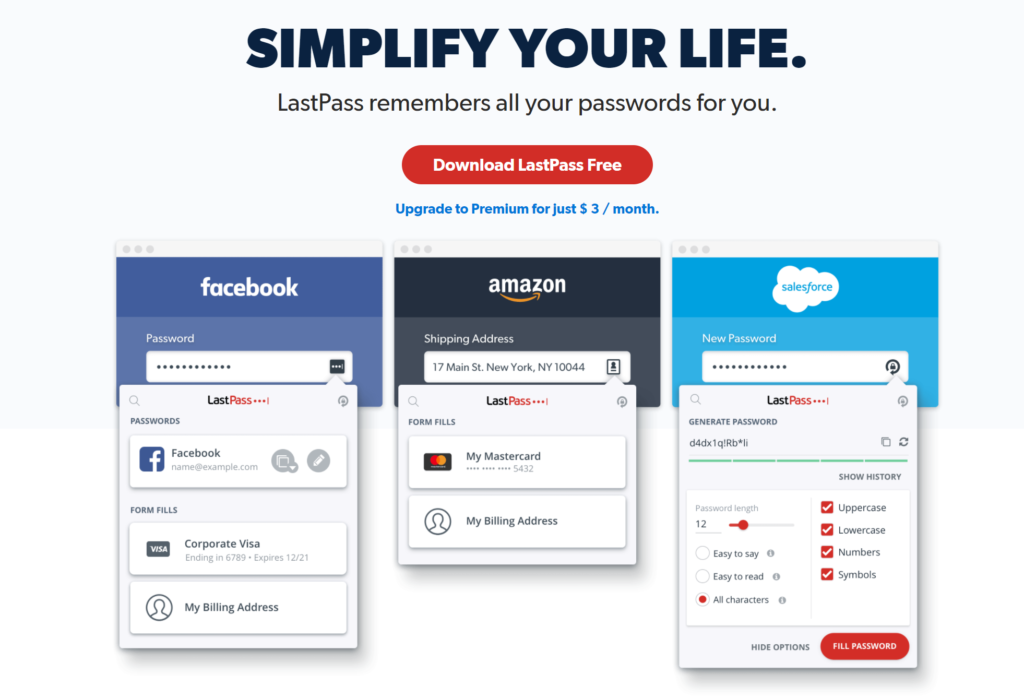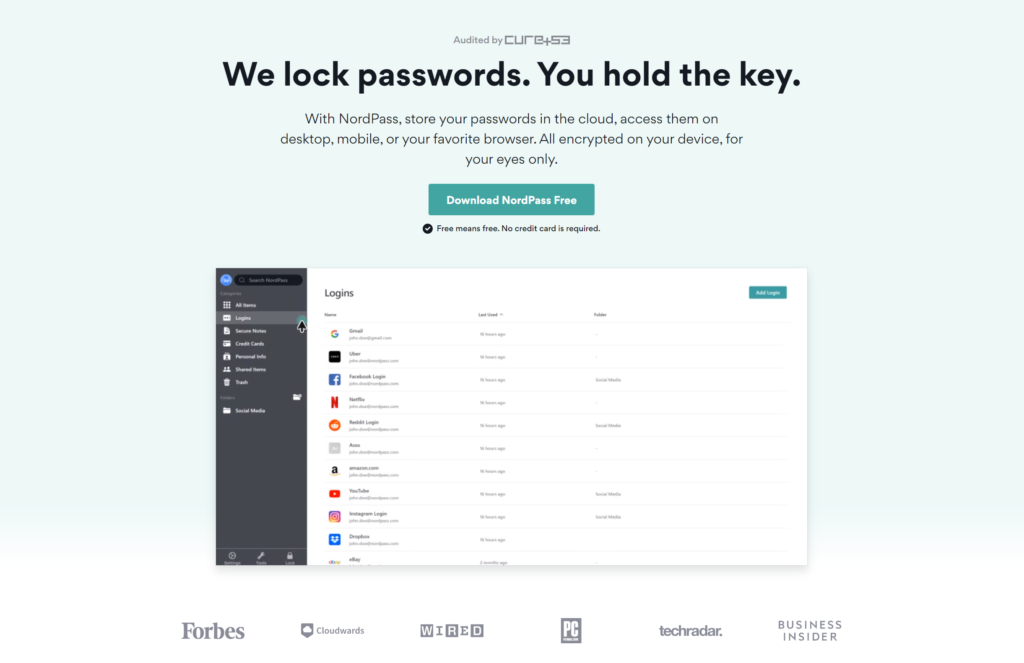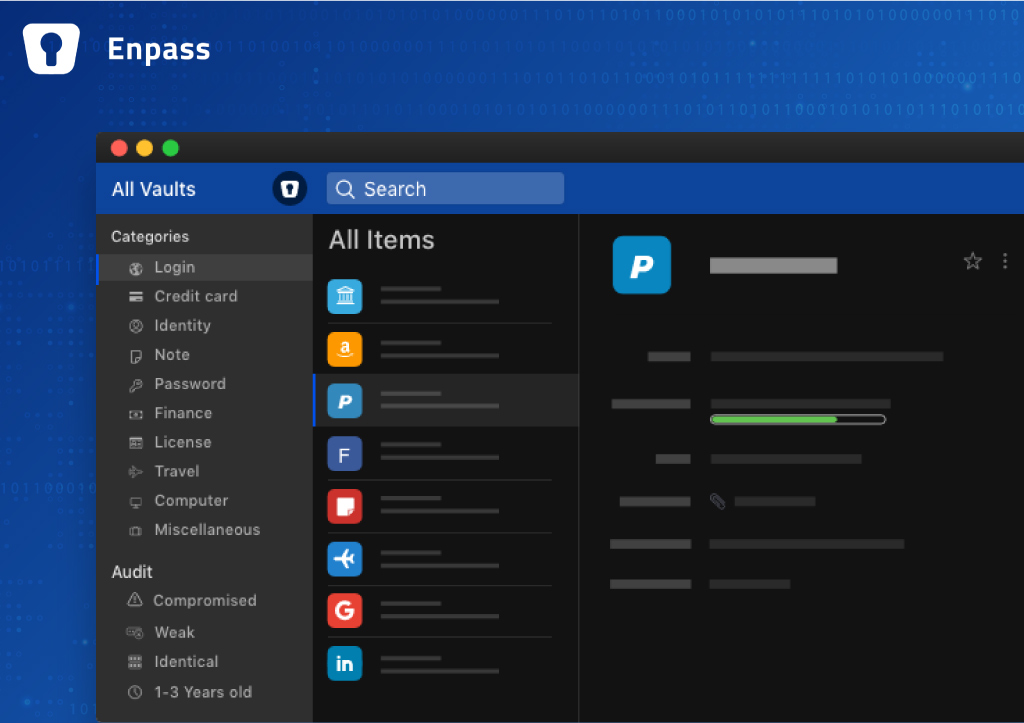We may earn a small commission if you choose to purchase from our links (at no extra cost to you!)
Best Password Managers in 2024
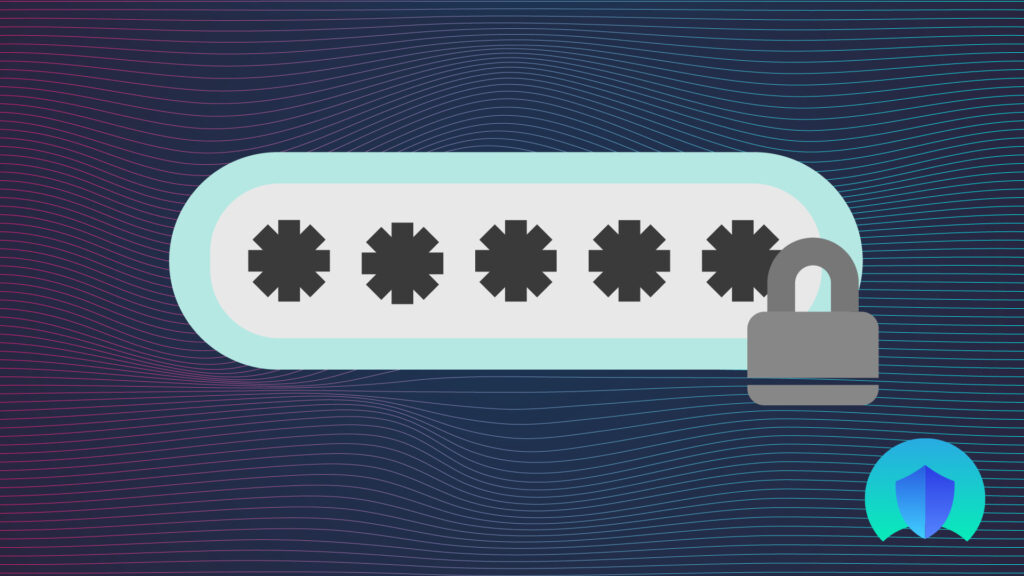
With more people working from home password managers have become almost essential to many people’s lives including my own. We have to remember more and more passwords that slowly become too strong and too difficult to remember.
A password manager makes managing passwords much easier, and it also helps create secure and reliable passwords whenever you need them. If you want to enhance your online security, check out our recommended VPNs.
Finding a password manager that suits your needs can be challenging, as there isn’t a “perfect” password manager that works for everyone. Each service offers unique features that can be useful for different people and their specific requirements.
Could I Use My Browser?
Third-party password managers, such as the ones listed below, can be used across different devices, platforms, and browsers. The password manager built into your browser is often limited to that specific browser. For instance, if you use Google Chrome, it will only autofill passwords when using Chrome (or a Google application), and the same applies to Safari and other browsers.
Third-party managers have the ability to autofill on all browsers and devices, a capability that a built-in password manager simply lacks. Additionally, password managers are dedicated to managing your passwords, meaning they employ better technology and are more dedicated to keeping your passwords safe.
Browser-based password managers usually only store your passwords and provide you with simple passwords that can easily be cracked. In contrast, third-party managers can create strong and reliable passwords, along with offering more useful features.
Bitwarden - New Kid on the Block
Looking for a secure, user-friendly, and open-source password manager with no limits? Bitwarden is your answer. It’s not just secure and open source (yes, you read that right), but also polished and easy to use. Being open source means the code powering Bitwarden is available for anyone to inspect, which enhances its security. In fact, Bitwarden undergoes regular audits by third parties to ensure its security, with the latest audit conducted in 2022.
With Bitwarden, you’re not limited to a specific platform. It offers apps for Android, iOS, Windows, macOS, and Linux, along with extensions for all major web browsers. Additionally, Bitwarden supports Windows Hello and Touch ID for added security on desktop apps. If you prefer self-hosting, you can install Bitwarden on your own server.
Bitwarden goes beyond just passwords. It supports passwordless authentication, allowing you to log in with a one-time code, biometric authentication, or a security key. You can even use passkeys to log in without using your username or password. Bitwarden also offers features like securely sharing files (Bitwarden Send), an authenticator app (paid only), and an active community for support.
One of Bitwarden’s handy features is its semi-automated password fill-in tool. When you visit a site with saved credentials, Bitwarden’s browser icon indicates the number of saved credentials for that site. Clicking the icon lets you choose which account to use and automatically fills in the login form. This makes it easy to manage multiple usernames without the risks of autofill.
For those seeking more features, Bitwarden offers a paid upgrade called Bitwarden Premium for $10 per year. This includes 1 GB of encrypted file storage, two-factor authentication with devices like YubiKey, FIDO U2F, and Duo, password hygiene and vault health reports, and priority customer support.
Try Bitwarden today and experience a secure, user-friendly password manager that puts your privacy first.
Dashlane has evolved significantly since its early days, transforming from a standard password manager into a powerhouse of features. Initially, it didn’t stand out much from its competitors, lacking unique selling points. However, continuous updates have added several valuable features, such as Site Breach Alerts, which monitors the web for compromised personal data—a feature that has now become common among similar services.
The setup and migration process is straightforward, requiring a secret key for password encryption, akin to BitWarden’s setup. In terms of functionality, Dashlane is quite similar to other leading password managers. It lacks a desktop app, which might be a downside for some users, but its browser add-ons and mobile apps cover all major platforms. Dashlane offers a 30-day free trial for users to explore its features before committing.
One of Dashlane’s standout features is its DarkWeb tracking, which actively scans for leaked personal information and notifies you of any risks. Both the desktop and mobile apps offer excellent performance, ensuring easy access to your data. To sync passwords across devices, you’ll need the premium version, which costs $5 per month. However, a free account is available, allowing storage of up to 50 passwords with multi-factor authentication.
The premium plan offers unlimited passwords and devices, along with a VPN for Wi-Fi protection, at $60 per year for individuals and $7.50 per month for families. Dashlane has truly become a unique and prominent competitor in the password manager market, offering a range of features that cater to diverse user needs.
1Password - Best Value
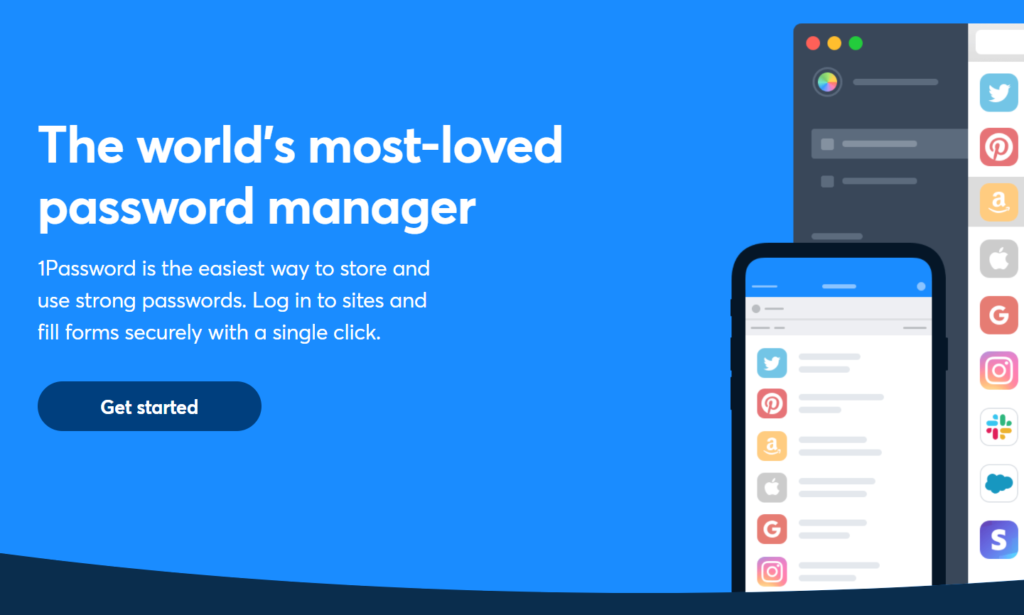
1Password aims to simplify and secure password management. Initially focused on Apple devices, it has expanded to various platforms and devices. It offers unique features, including acting as an authentication app like Google Authenticator and offering a browser extension for easy login.
Notably, 1Password excels in mobile integration, autofilling passwords without the need to copy-paste. It stores data securely in the cloud and encrypts data on devices. Travel Mode enhances security by deleting personal data before travel and restoring it afterward, preventing unauthorized access.
Pricing is flexible, with plans for individuals, families, and businesses, and a 30-day free trial. The app is available on multiple platforms, including macOS, iOS, Android, Windows, Linux, and ChromeOS, with plug-ins for web browsers.
While BitWarden may be a more cost-effective choice, 1Password offers unique features like Travel Mode. It uses a two-key system for account access, requiring a password and a secret key, enhancing security. However, losing the secret key can result in permanent data loss. Integrating as an authentication app, it offers seamless password autofill in many apps, particularly useful on iOS.
LastPass - Great Free Version
LastPass is a well-known and popular password manager with many years of experience. It offers both a free and paid version of its services, and both are honestly pretty good. LastPass is created by LogMeIn (a remote access desktop tool). The issue with LastPass is that it’s been hacked in the past, but mistakes do happen and no software is foolproof.
For encryption, LastPass uses AES-256 bit encryption to not only keep your passwords safe but also to secure your credit cards, addresses, and other personal information. This makes purchases much easier since it automatically fills in all the boxes.
My favorite part about LastPass is that it supports multi-factor authentication, which can help prevent phishing attempts by requiring additional forms of authorization before logging into your accounts (such as a code, face, or fingerprint). Not all password managers have this feature quite yet, but it’s a pretty good one to have.
The best part about LastPass is its free version. It offers great features, but most importantly, it can autofill on mobile devices (an option most password managers don’t offer for free). Even if you lose your phone, all your passwords will be in one place. The pricing of the premium plans is also very reasonable and affordable.
LastPass is great if you’re on a budget and want to find a great Password Manager that can do a lot. It has its famous free version which is available on most popular devices. Its premium plan starts at $3 per month ($4.25 cad) and offers 1 GB of encrypted storage and the ability to share passwords between devices. They also offer a family account that allows up to 6 members.
NordPass - New Option
NordPass is a branch of NordVPN, one of our favorite and highest-rated VPN services. While relatively new to the password managing industry, NordPass comes from a well-known company in the VPN field and offers users unique features similar to NordVPN. Installing NordPass is easy, and it’s available on all major devices and platforms, including browser extensions.
While NordPass might have had a bit of trouble at the start, it is now a reliable and safe password manager. It uses the XChaCha20 encryption protocol to ensure that your passwords are secure and unhackable. NordPass, unfortunately, is not an open-source application, but it does come from a reputable background in the VPN space.
Another notable feature of NordPass is its use of a zero-knowledge setup, which means all your passwords and information are encrypted before being uploaded to the servers. They also offer two-factor authentication (2FA), which provides extra security.
In addition to storing passwords, NordPass allows you to store personal information such as addresses, phone numbers, and other details, all in one app.
The free version of NordPass is quite limited, as you can only use it on one device without any sync. However, they offer a 7-day free trial, which you can use to test the features and see if it suits you. The premium plan costs $36 a year (and yes, they do accept cryptocurrencies).
KeePassXC - Self Hosted
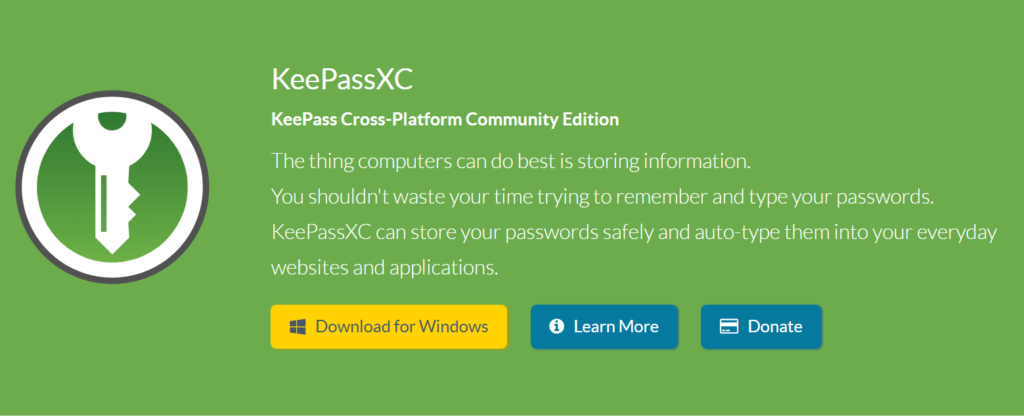
The unique feature of KeePassXC is that it stores (and encrypts) your passwords locally and requires no internet connection to access them. Other managers, such as Bitwarden and 1Password, store your passwords securely in the cloud or in third-party services like Dropbox or SpiderOak, which is still pretty secure.
KeePassXC is a great option because it offers a lot of power and flexibility, and the best part is that it’s open-source! It’s often used more by computer experts, such as engineers and IT people.
Enpass - Also Self Hosted
Enpass, the password manager, prioritizes your security by not storing any data on its servers. Instead, syncing is facilitated through third-party services. Enpass offers apps across all platforms, ensuring seamless functionality once syncing is configured. Your data’s security is paramount, as it remains off Enpass’s servers, minimizing the risk of hacking.
Enpass supports syncing through various services like Dropbox, Google Drive, OneDrive, iCloud, Box, Nextcloud, or any service using WebDAV. However, SpiderOak is currently not supported. Additionally, you can synchronize your data over a local WLAN or Wi-Fi network.
Enpass offers all the essential features of a password manager, including auto-generated passwords, breach monitoring, biometric login (for compatible devices), auto-filling passwords, and the ability to store other data like credit cards and identification information. A password audit feature helps identify weak or duplicate passwords in your vault. An added convenience is the ability to tag passwords for easier searching. Enpass also simplifies the setup process for syncing through your preferred service. Recently, Enpass added support for passkeys.
Enpass is free for Windows, Mac, and Linux, with the mobile version allowing syncing of up to 25 items in one vault for free. For additional items, a paid service is required.
To get started, sign up and download the app for Mac, Windows, Linux, Android, and iOS. Also, install the browser extensions for Chrome, Vivaldi, Edge, and Firefox.
Basics of Password Managers
A password manager is a convenient tool many use to keep track of their passwords. It generates and securely stores your passwords in one place. It only will cost a few dollars per month, but it will save tons of time and effort.
Browser Extensions
Most current password managers offer multiple apps for different devices. Most will even have a browser extension making it easy to access your passwords without even needing to switch the application. The only thing you need to do is click on the extension, select which account you want to use, then it will do most of the work after that. All your passwords will be encrypted and stored in a safe.
Master Password
In order to access all of your passwords, you will need to remember your master password. This is the password you use to access your password manager, without this password you can’t access your passwords to make sure you write it down somewhere. Make sure this password is ultra-strong.
Choosing a master password can be intimidating but creating a secure password is actually easier than it may look. I would recommend using passwordgenerator since you can customize how long your password is and the types of symbols used within it.
Compromised Passwords
Even if you have a password manager there’s nothing you can do if the website itself becomes breached. The best thing you can do is make sure each password is unique and no password is similar/repeated. Some password managers alert you if your password might have been compromised. This is yet another reason why password managers are extremely useful.

